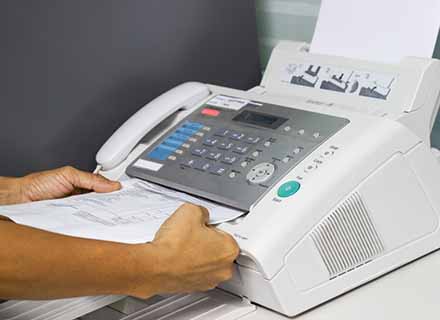The fax machine is a relic in many offices, a throwback to the quirky charm of the 1990s, typified by sitcoms like “Seinfeld,” even in a time when the pings and tones of emails and texts symbolise the cadence of contemporary communication. As technology gets “smart” in the 21st century, a sizable portion of these gadgets (now considered relics) are still in use in many countries. It begs the question, why?
Here are the top five reasons why fax remains essential for business use.
Saves Time And Money
In the present era, traditional fax machines have become much less common. These days, the great majority of businesses have switched to digital fax solutions, which allow for increased efficiency and cost and time savings.
Digital fax services only charge for inbound and outbound transmissions, unlike older models that require continuous expenses for paper and toner. Compared to the ongoing expenses related to maintaining traditional fax machines, these fees are significantly less.
Compliance With Legal Requirements
The distribution of medical records is now much more complicated due to HIPAA regulations. When exchanging documents between different healthcare facilities, strict guidelines are followed. It’s important to remember that these are not just security precautions. For example, the risk of misdirecting confidential health information does not go away even with advanced encryption.
Fax machines are still commonly used in medical practices, especially for communication between specialists, because they comply with HIPAA. Additionally, fax technology is still widely used by attorneys. The benefits of faxing are its legal validity, ease of physical record-keeping and real-time transmission. Compared to emails or texts, which might not have the same legal weight in court proceedings, faxed documents offer a trustworthy and robust record.
Messages Don’t Get Lost
Fax machines are still in use in 2024 because of their unwavering dependability, even in the age of digital communication. Fax messages are more likely to be delivered correctly than messages sent by phone or text, which occasionally don’t reach their intended recipient.
Signal outages are a common occurrence that can interfere with text and phone conversations and cause emails to get misplaced in a jumbled spam folder. But faxes overcome these problems by guaranteeing that the message will reach its intended recipient.
Does anyone still use fax machines these days? If you value the assurance that your message will reach its recipient, then sending a fax is still the best option. However, as online faxing becomes more popular, the preference is now shifting toward this digital form of communication. You can completely do away with the fax machine by using a fax app. When you install the application, your smartphone’s camera for scanning, security features, and Internet connection for document transfers are all you need to send and receive faxes.
Confirmation Pages
When debating whether or not fax machines are becoming obsolete, take into account the confirmation page’s timeless value. Fax machines are still widely used in business communication, despite their seeming antiquated status, because of these pages.
Verifiable proof of receipt, confirmation pages provide legal validation and support the upkeep of a formal record of business transactions. Important information like the sender and recipient’s fax numbers are displayed, along with the exact time and date the message was sent, highlighting their significance in the business world.
Security Concerns
An analogue phone line served as a direct and reasonably safe transmission channel for legacy fax machines. This technology’s inherent characteristics minimised the possibility of message interception or manipulation by outside parties. Traditional fax machines provided an additional layer of security against cyber threats by preventing their reliance on digital infrastructure. This helped to protect the data you sent from potential hacker intrusion.
On the other hand, Electronic fax solutions use the internet to exchange documents instead of traditional telephones. They take advantage of the speed and accessibility of online communication while offering the convenience of compatibility with antiquated fax systems.
Though eFax systems modernise the process, it’s important to remember that they might not have all of the security features that were inherent in their analogue predecessors.
Nevertheless, the transition from analogue to digital faxing represents a necessary change that strikes a balance between tradition and progress in technology. When evaluating the privacy consequences of using the current eFax services, it’s critical to take these things into account.

